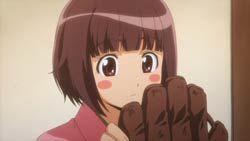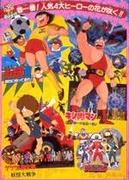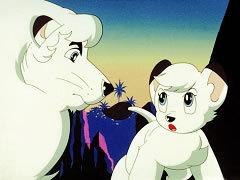The appeal and reputation of Taisho Baseball Girls: A deep look into the anime that depicts the fusion of history and sports

Taisho Baseball Girls.■ Public MediaTV anime series ■ Original MediaLight novel ■ Broadcast period July 2, 2009 - September 24, 2009 ■Broadcasting stationTBS Television Network, BS-TBS, Disney Channel ■Frequencieshalf an hour ■ Number of EpisodesEpisode 12 ■Original Story・Original work: Jun Kagurazaka ("Taisho Baseball Girls." Tokuma Novels Edge) ■ DirectorTakashi Ikebata ■ Production・Animation production: JCSTAFF ■Works©Jun Kagurazaka/Tokuma Shoten, Toho Seika Oukakai ■ Story The year is 1925. ■Explanation The year is 1925. In a society where male superiority over women is deeply rooted, Akiko Ogasawara, a student at Toho Seika Girls' High School, is begged by her best friend, Koume Suzuki, to "form a girls' baseball team together." ■Cast・Suzukawa Koume/Ito Kanae・Ogasawara Akiko/Nakahara Mai・Kawashima Noe/Ueda Kana・Soya Yuki/Noto Mamiko・Tsukikage Tomoe/Kaida Yuko・Tsukikage Shizuka/Kitamura Eri・Ishigaki Tamaki/Hirohashi Ryo・Sakurami Kyoko/Makino Yui・Kikusaka Kochou/Goto Saori・Owari Noriko/Fujimura Ayumi・Anna Cartland/Arai Satomi・Barbara McGregor/Mayama Ako・Kiya Saburo/Hino Satoshi・Iwasaki Sosuke/Kato Masayuki・Takahara Hanmutsumi/Kawada Shinji・Ogura Yahachiro/Sidemi Tamio・Suzukawa Yoichiro/Takaoka Binbin・Suzukawa Yae/Hisakawa Aya・Oguchi Kyoko/Yoshizawa Kiri・Yanagi Kazuma/Nishi Kensuke・Kitami Koichi/Soma Yukito・Tamura Inori/Tamanoi Naoki・Yoshimura Sozaburo/Nojima Yuji ■ Main staff・Original story: Jun Kagurazaka (Taisho Baseball Girls, Tokuma Novels Edge) ■ Main Characters・Suzukawa Koume She is the only daughter of the Western restaurant "Suzukawa" in the Azabu-Juban shopping arcade. She has a bright and lively personality. She helps out with cooking and serving at the restaurant. Her cheerfulness and friendliness means that many customers come just for her. By nature, she is often the one to listen, and on top of that, she has a hard time saying no. This backfires, and she often gets caught up in trouble. However, her classmates rely on her and confide their worries and concerns to her. She worries about her thick eyebrows, just like her father, and the muscles in her arms that she has built up from helping with cooking. ■Subtitle・Episode 1/That thing that boys say (2009/07/02) ■ Related works・Taisho Baseball Girl. Is tonight a romantic strike for me? ■ Theme songs and music・OP1 Detailed review and recommendation of Taisho Baseball Girls."Taisho Baseball Girls" is an anime based on a light novel by Jun Kagurazaka, which was broadcast in 2009. This work depicts the formation of a girls' baseball team and their struggles against the backdrop of the historical background of the Taisho era. Below, we will explain in detail the appeal and features of this work, as well as the recommended points. Story and setting"Taisho Baseball Girls" is set in Japan in the year 1925. In an era when there was a strong trend of male superiority over women, the appeal of the series lies in its innovative setting in which students at an all-girls school, Toho Seika Girls' High School, try their hand at baseball. The main character, Suzuki Koume, is invited by her best friend Ogasawara Akiko to join the baseball team, but she starts out without knowing anything about the rules or equipment of baseball. The struggle that begins with this ignorance will surprise and move viewers in a fresh way. The story depicts the girls' development through baseball, while also skillfully weaving in the social background of the time and the theme of improving the status of women. In particular, the depiction of these girls taking on the challenge of baseball, a male-dominated sport, is sure to give courage and hope to viewers. Each episode also depicts the backstory and growth of each individual character, and the storytelling has been praised for drawing viewers in. characterEach character in this work is unique and charming. The main character, Suzukikawa Koume, has a bright and lively personality and is loved by those around her. Her inability to say "no" sometimes causes trouble, but thanks to this, she is able to interact with many people and grow as a person. Akiko Ogasawara is an active and strong-willed character, despite being raised in a wealthy family. Her leadership and foresight contribute greatly to the formation and management of the baseball team. In addition, the individuality of each character, such as Noe Kawashima's theoretical thinking, Yuki Soya's meticulous attention to detail, and Tomoe Tsukiyomi's athletic ability, support the team and enrich the story. In particular, the twin sisters Tsukiei Tomoe and Tsukiei Shizuka are impressive for how they support each other despite their contrasting personalities. Tomoe's free-spiritedness and Shizuka's sensitivity provide viewers with a new perspective. Additionally, the backstories of each character are explored in depth, such as Ishigaki Tamaki's shy personality, Sakurami Kyoko's ambitions as a supporting actor, and Kikusaka Kocho's struggles in the track and field club, eliciting empathy from viewers. Animation and performanceThe animation for "Taisho Baseball Girls" was produced by JCSTAFF, and the character designs and background art are incredibly beautiful. In particular, the detailed depictions of the streets and costumes from the Taisho period have the power to draw the viewer into that era. Additionally, the movements in the baseball scenes, the changes in facial expressions, and other aspects of the characters' emotions are expressed in a realistic way, which is superb. Director Ikebata Takashi has devised ways to keep viewers interested by depicting different themes and character growth in each episode. In particular, the baseball game scenes are skillfully created to create tension and excitement, drawing viewers in. Additionally, the background music by Hattori Takayuki is also an important element in enhancing the atmosphere of the story. Theme songs and musicThe opening theme "Romantic Strike." is sung by Kanae Ito (voice of Koume Suzuki), Mai Nakahara (voice of Akiko Ogasawara), Kana Ueda (voice of Noe Kawashima), and Mamiko Noto (voice of Yuki Soya), and is a song that symbolizes the theme of the work, "Dreams and Challenges." The collaboration between rino (lyrics), Takayuki Hattori (composition), and Kaoru Okubo (arrangement) leaves a strong impression on viewers. The ending theme "Yume Miru Kokoro" is a beautiful ballad sung by Kanae Ito, who plays Koume Suzuki, depicting her growth and dreams. The song, written by Aki Hata and composed and arranged by Takuya Watanabe, moves viewers and plays an important role in leaving an impression on the story. Recommended points"Taisho Baseball Girls" is a work that can be recommended for the following reasons. 1. **A fusion of historical background and modern perspective**: While depicting the social background of the Taisho era, the story portrays the advancement of women's status and the pursuit of their dreams from a modern perspective, deeply inspiring viewers. 2. **Unique characters and a story of growth**: The individuality and growth of each character are depicted, evoking empathy and emotion in viewers. In particular, the story of growth and friendship through baseball is appealing. 3. **Beautiful animation and direction**: The beautiful animation by JCSTAFF and the skillful direction by Ikebata Takashi have the power to draw the viewer in. In particular, the tension and excitement of the baseball scenes are beautifully portrayed. 4. **Emotional Theme Songs and Music**: The opening and ending theme songs symbolize the theme of the work and leave a strong impression on the viewers. Kanae Ito's singing is particularly moving. 5. **Depiction of social themes**: The story of girls challenging the male-dominated society gives courage and hope to the viewers. It also depicts universal themes such as friendship and challenging dreams, making it a work that can be recommended to a wide range of audiences. Conclusion"Taisho Baseball Girls" is a moving work that depicts the formation and struggles of a girls' baseball team set against the historical backdrop of the Taisho era. The unique characters, beautiful animation, and moving theme song will draw viewers in and give them courage and hope. This work is especially recommended for viewers who sympathize with themes such as improving the status of women and challenging their dreams. Please enjoy this work and experience the dreams and challenges of girls in the Taisho era. |
<<: Bakemonogatari: A thorough explanation of the appeal and reputation of the Monogatari series
>>: "NEEDLESS" Review: The appeal of supernatural battles and a deep story
Recommend
The final episode of "Hanzawa Naoki" ended successfully with a viewership rating of 32.7%, setting a new record for Japanese dramas
The extremely popular Japanese drama series "...
The appeal and evaluation of Invincible Steel Man Daitarn 3: A monumental achievement in robot anime
Invincible Steel Man Daitarn 3: A Masterpiece of ...
From bad to good! Forbes official website announced the top 9 superhero movies of 2018
Ever since Spider-Man and X-Men proved how popula...
The new female lead of the TV series "Mr. and Mrs. Smith" is confirmed to be Asian + black
Recently, according to foreign media Variety, the...
Rumors debunked: Tom Cruise's death news is fake news account exposed as a full-time fake news
According to foreign media reports, American acto...
The Walking Dead spin-off Maggie reveals there will be some extremely scary zombies
The main story of the super popular American TV s...
Going global requires looking to Hollywood? Well-known film critics comment on the Hollywoodization of famous Japanese IPs
Today, the well-known Japanese film critic Hiroak...
The final trailer of the web drama "Cross Fire" starring Lu Han and Wu Lei will be broadcast at 8 o'clock tonight
Today (July 20), the web series "Cross Fire&...
The story told by 3,463 pens: One Piece manga 25th anniversary commemorative video released
The 25th anniversary commemorative video of the &...
Forced cuteness! The Douding version of Godzilla planned to commemorate the 65th anniversary of Godzilla's birth is eye-catching
Japan's classic giant monster Godzilla is wor...
Skeletons found at the filming location of Hayao Miyazaki's "My Neighbor Totoro"
I believe many of you have watched Hayao Miyazaki...
The moving story and reviews of "Hit by Black Rain": A masterpiece anime that you can't watch without crying
"Hit by Black Rain": Digging deeper int...
Idris replaces Will Smith as Deadshot in Suicide Squad 2
Recently, Will Smith, the Deadshot in "Suici...
It is revealed that "Alien: Death Stranding" will be released in mainland China on August 16 without any cuts
The sci-fi thriller "Alien: Revenge" wi...
The legendary masterpiece "Black Jack" will be broadcast in the new Japanese drama this year, starring Takahashi Issey
The legendary masterpiece "Black Jack",...









